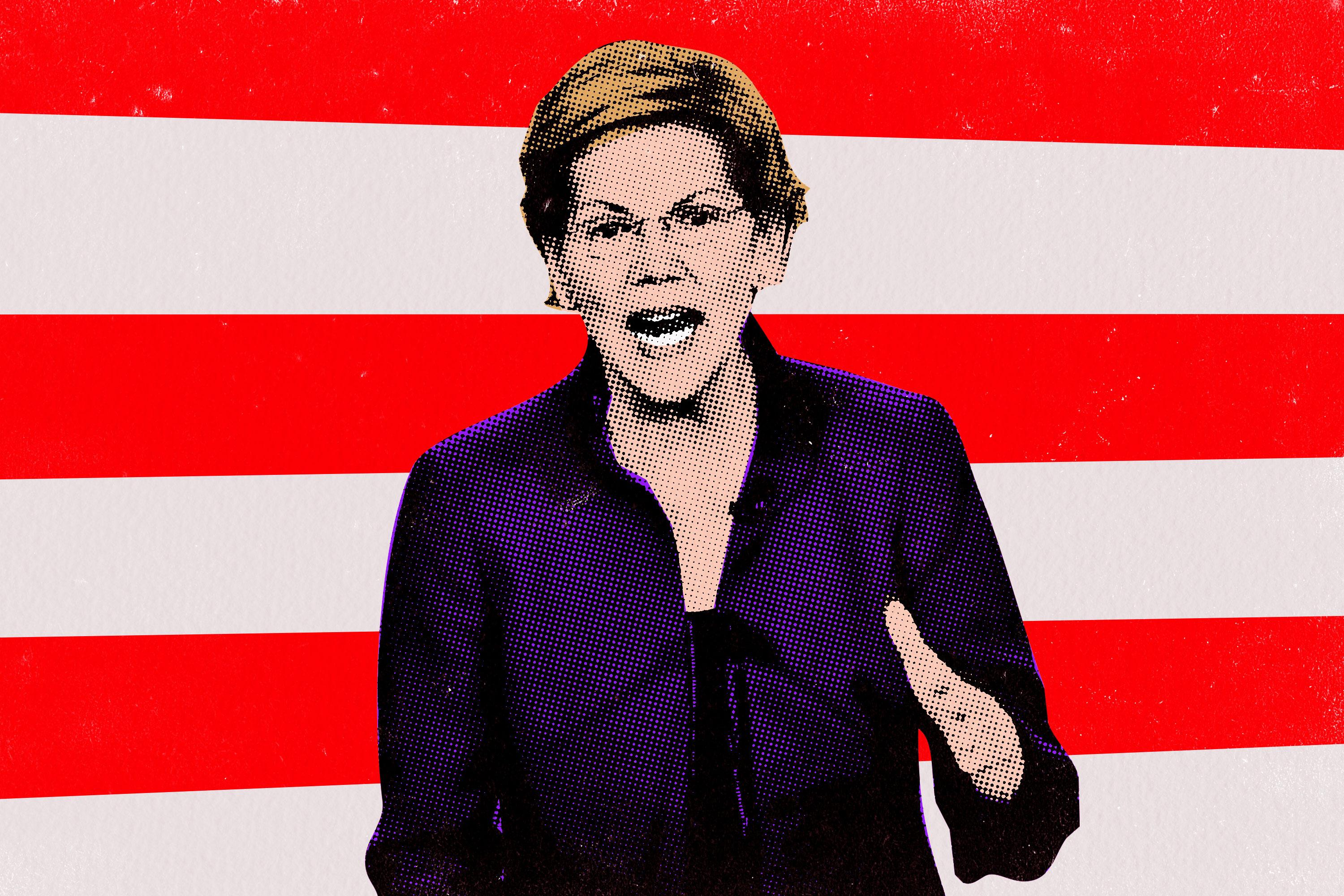
The first debate of the 2020 Democratic presidential primary race took place in Miami on Wednesday night. NBC’s ludicrously devised two-hour televised format split the field in half, with two sets of candidates spread across two nights. Thursday night features front-runners like former vice president Joe Biden and Vermont Senator Bernie Sanders, while Wednesday night’s debate risked disregard as “the kids’ table.”
The highest-polling candidate on the stage was Massachusetts Senator Elizabeth Warren, who dominated the first debate with furious left-wing pronouncements about economic justice. Warren pitted “workers, small businesses, and independent farmers” versus the great variety of modern “monopolists,” such as Amazon, a company with practices Warren opposes in meticulous detail. Warren’s rivals largely adopted her posture with less rhetorical force and precision. Long-shot candidate New York City Mayor Bill de Blasio launched an angry broadside against former Texas representative Beto O’Rourke, whose star power withered in direct comparison with his center-left rivals, New Jersey Senator Cory Booker, former San Antonio mayor Julián Castro, and Ohio representative Tim Ryan. The night favored Warren’s anticorporatist anger over O’Rourke’s appeals to transcend partisan politics. The kids’ table got rowdy.
Warren didn’t contend with her fellow Democrats onstage so much as she sparred with President Donald Trump, defying Hillary Clinton’s establishmentarian example in the previous election cycle. Warren spared her greatest offstage rival, Biden, for now, and countered Trump without obsessing over the president or even naming him very often. Warren’s rhetoric was designed to counteract Trump’s efforts to define the country’s economic success as a stock market rally and a low unemployment rate. Warren defined economic performance in terms of inequality and, ideally, justice: “It’s doing great for giant drug companies,” Warren said. “It’s just not doing great for people who are trying to get a prescription filled.” Arguably, Warren offered the best policies for the alleviation of suffering under capitalism. Inarguably, Warren has hired the best speechwriters.
The nine other candidates reliably opposed crony capitalists in the abstract. Still, they struggled to match the clarity of Warren’s antagonism; Booker hedged his opposition to “corporate consolidation” with ultimate deference to “the free market.”
The candidates drew the familiar center-left vs. left distinctions in segments dedicated to immigration, health care, and gun control—issues which most of the candidates have, as congressional members, struggled to address through legislation. Warren and de Blasio clamored for an end to private health insurance. Warren dodged NBC moderator Chuck Todd’s questions about gun control with calls for “research”; Booker cited statewide studies in his support for gun-licensing programs. In a skirmish between the two Texan candidates, Castro challenged O’Rourke’s opposition to decriminalizing border crossings. De Blasio made the night’s most succinct argument against Trumpism in a conversation about immigration, employment rates, wages, and the working class. De Blasio’s rhetorical prescriptions were a plea for comparison to Warren and Sanders: “The immigrants didn’t do that to you! The big corporations did that to you!” he said. Ryan, who spent much of the evening talking about “forgotten communities,” characterized the Democratic Party’s post-Trump agony about working-class voters as 40 years too late.
The night blotted O’Rourke, who faltered against de Blasio and Castro in conversations about health care and immigration, respectively. In the first hour, O’Rourke slogged through a muddled, moderate pronouncement about “Medicare for All” until de Blasio snapped, “Why are you defending private insurance?” illuminating the sense of indignation and grand ambitions on display. Surprisingly, the candidates and moderators refrained from making the evening a general rant about Trump. More than Minnesota Senator Amy Klobuchar and former Maryland representative John Delaney, O’Rourke embodied the moderate, conciliatory tact many Democratic activists have abandoned under Trump. De Blasio may have gone too far in the other direction, as he later ranted into a commercial break. The anger made for a tough balance between raw passion and practical appeals. Warren struck the balance. De Blasio struck O’Rourke’s last nerve.

